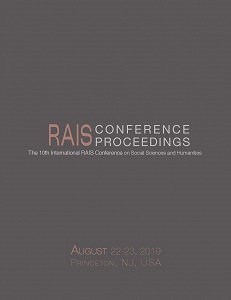Challenging Binaries in Migration: The Role of the Environment in Mobility
Challenging Binaries in Migration: The Role of the Environment in Mobility
Author(s): Azin Emami
Subject(s): Environmental interactions, Migration Studies
Published by: Scientia Moralitas Research Institute
Keywords: displacement; environmental change; environmental refugees;
Summary/Abstract: The rise in global temperatures and extreme weather events has affected agricultural trends throughout the world and threatened the livelihoods of entire communities. Although not a determinant on its own, environmental degradation constitutes one of the overlooked causes of mass displacement in the 21st century. This paper critically examines the notion of ‘environmental refugees’ and its linkages with the formation of new forms of precarious labor in the Global South. The aim of this paper is to survey the available literature on environmental migration in order to explore some of the humanitarian consequences of anthropogenic climate change. More specifically, this paper works with the myth of ‘invasion’ by environmental refugees in order to understand the systemic nature and demographic characteristics of population displacements related to the erasure of the means of survival, land and work for communities en masse, compelling members of these communities to take severe risks for survival. Drawing on the available literature on climate change and migration patterns, this paper will consider the debate on international recognition for environmentally displaced persons (EDPs). Finally, the ways in which the international community can begin to respond to anthropogenic climate change and the associated ecological crises will be considered. The paper concludes that existing binaries in refugee law fail to capture the intricate relationship between social, economic, political and environmental factors in human mobility, leaving many environmentally displaced people without protection. In order to overcome this oversight, we must critically analyze existing categories and prioritize the voices and lived experiences of those impacted by environmental change.
Book: Proceedings of the 10th International RAIS Conference on Social Sciences and Humanities
- Page Range: 230-234
- Page Count: 5
- Publication Year: 2018
- Language: English
- Content File-PDF

